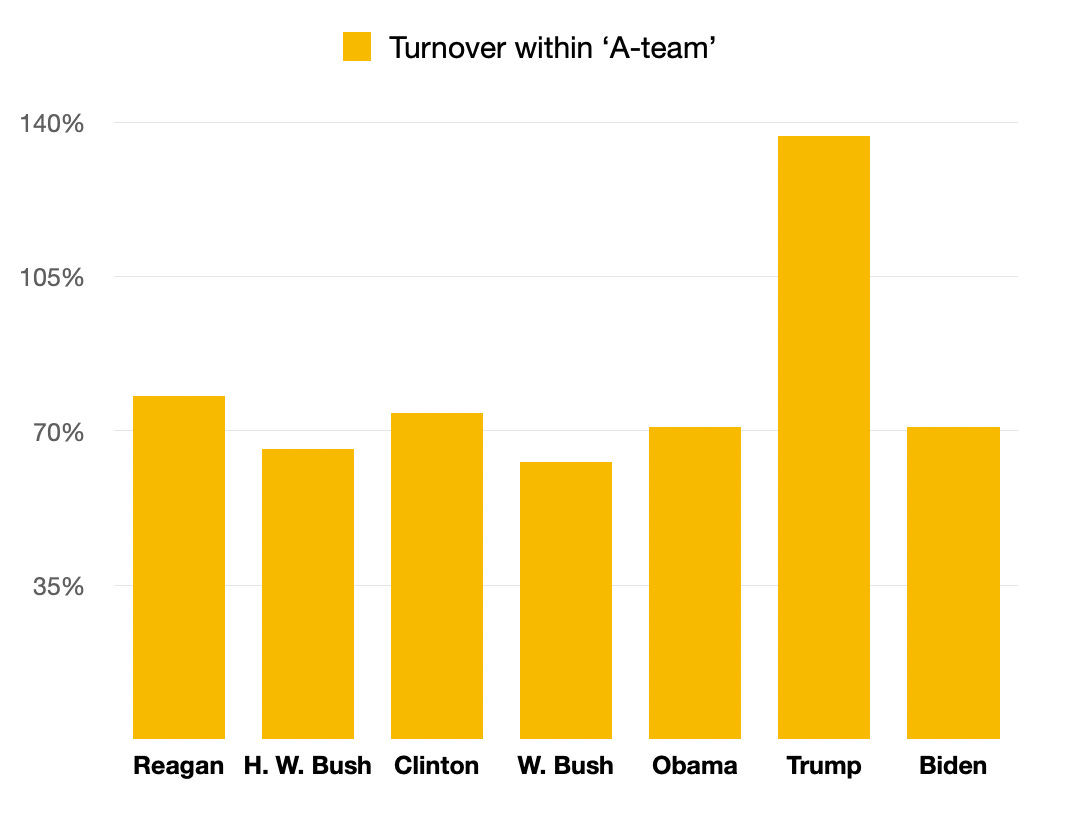
Photographing the Beauty of the North
April 22, 2025
ICE Arrested an Immigrant. Now He Has Disappeared.
April 22, 20251. A pileup of screwups
Last week’s revelation that the Trump administration’s high-stakes standoff with Harvard University had been sparked by a demand letter sent erroneously is notable for two reasons. The most obvious is that the resulting imbroglio, along with ending billions of dollars worth of federally supported research, threatens to damage the crown jewel of American academia.
The second is for the sobering reminder the episode provides about how this new Trump administration functions. This is not a smooth-running operation. Indeed, the extent to which Trump’s first three months back in office have been characterized by mistakes—from bumbling embarrassments to calamitous errors endangering national security—is frankly breathtaking.
Weeks before the White House’s antisemitism task force sent an “unauthorized” letter to Harvard making demands so onerous (such as federal oversight of admissions) that university leaders felt compelled to publicly fight it, Trump officials acknowledged they mistakenly deported Kilmar Abrego Garcia to El Salvador.
Weeks before that, the White House conceded that top national security officials had erroneously added the editor of the Atlantic to a Signal chat where they discussed war plans.
In the middle of all that, economists at the American Enterprise Institute noted that the tariff formula the president was applying to dozens of countries had a massive mathematical flaw in plain sight, while penguins in the Indian Ocean were dismayed to learn that the tariffs were targeting them.
Those were the main-course screwups. The side dishes have been plentiful, too. Health and Human Service Secretary Robert F. Kennedy Jr. said he had mistakenly fired an unhealthy chunk of the federal health care bureaucracy; the State Department said it cut funding to some lifesaving UN food programs by mistake; and the Justice Department was dinged for putting out personal information in its release of files around President John F. Kennedy’s assassination.
And then there is Elon Musk, the master chef of Trump world fuckuppery. Among other missteps, Musk’s DOGE was forced to delete items from the list of savings it has compiled because the data was wrong, had to rehire hundreds (if not thousands) of wrongly terminated workers, listed and then unlisted federal buildings it proposed to put up for sale, and acknowledged accidentally stopping work on critical functions, like nuclear-weapons monitoring and Ebola prevention. Musk has been so prone to error that he has sought to turn it into a virtue—a manager with the capacity to admit flaws!
“Nobody bats 1,000,” Musk said.
And, of course, that’s true. Every White House makes mistakes, including some pretty major ones—the withdrawal from Afghanistan, the launch of healthcare.gov, the decision to keep interns around during a government shutdown, and so on. But the Trump mess-ups stand out both because there are so many of them and because of how indifferent the president and his team are toward pursuing fixes. Rarely, if ever, are remedial steps taken. Often, Trump’s team will compound an error by refusing to acknowledge it at all, or aggressively defending it as if it had been the approach they’d wanted to take all along.
● RFK Jr. and Musk have both admitted that cuts were mistakenly made. But they also continue to defend their shoot-then-aim approach.
● Signalgate did not lead to serious introspection about the dissemination of classified material. Instead, it morphed into an effort to downplay classification and rationalize the use of encryption apps—and even more hackneyed defenses after a second instance of Signal use was reported this past weekend.
● The math blunder behind the tariffs wasn’t corrected. Instead, it was hailed as a properly aggressive means to rebalance trade deficits, nearly bringing the global economy to a free fall before Trump advisers resorted to desperate, juvenile measures to pause the pain.
● Trump officials didn’t try to calm matters with Harvard after sending the unauthorized letter. Instead, they used the university’s shock at the demands being made of it to rationalize going after it even harder.
● And, of course, rather than just bringing back Abrego Garcia and deporting him to a third country, the administration has taken extraordinary steps to keep him in El Salvador, in defiance of court orders. Trump would rather risk a constitutional crisis than fix this error.
2. “More professional”?
Which brings us to perhaps the most remarkable feature of this season of screwups: There are plenty of people who believe the White House isn’t making missteps at all—that these are all really just carefully crafted plans by the president’s team to push the lines of presidential authority. After all, the thinking goes, Trump and his team had four years to chart out what they would do in a second administration. That team was expected to be staffed by competent people who had spent years out of office preparing for their jobs, ready to hit the ground running. And Susie Wiles, credited with making Trump’s third presidential campaign “more professional” than the first two, was named chief of staff in hopes she’d do the same thing for the White House: This was supposed to be a more professional operation.
And to a degree, it has been. The mistakes of Trump’s first term (especially pre-COVID) seemed more shambolic—a combination of staff incompetence, unclear policy direction, and poor leadership. Remember this graph of turnover among the top-level presidential staffers?

So far we haven’t seen signs that this new Trump administration is plunging toward that kind of staff chaos. (Pete Hegseth: Hold my [non-alcoholic] beer.)
But errors are quickly coming to define Trump 2.0. And it is precisely because they are being made in the service of larger projects that the administration is fixated on—expanding the powers of the presidency, breaking academia and other cultural foes, testing what deportation powers the courts will grant them—that those errors feel and indeed are more consequential.
3. Rusty guardrails
I started drafting the above on Monday, having spent some time over the weekend marinating on all the ways in which the Trump administration had stepped on rakes. This morning I was reminded once more of why this all seems so much more consequential than in Trump 1.0.
Over at Morning Shots, my colleague Andrew Egger has a really smart piece looking at the market reaction to Trump’s tariffs and his threats to fire Fed Chair Jerome Powell. The item boils down to three main points: (1) Wall Street doesn’t like Trump’s policies, especially not his tariffs; (2) Wall Street is worried that Trump may actually act on his anti-Powell impulses this time around; and, most importantly, (3) there are fewer guardrails in existence to prevent Trump from acting.
Guardrails—whether in the form of independent agencies, clearly defined legal limits, a Congress willing to push back, or staffers with the courage to stand up—matter. And what we are witnessing now is what happens when they are weakened or outright eliminated.
In the absence of guardrails, Trump’s threats have to be taken both seriously and literally. There are fewer chances to prevent missteps (Hey, Mr. President, maybe we should check the math on those tariffs one more time?). There are fewer opportunities to clean up mistakes after they happen (You know, is it really worth bringing down the constitutional order over this Abrego Garcia case?). And there are fewer occasions when Trump’s impulsive utterances can be written off as him just blowing off steam (Wait, you really want to deport American citizens, too?).
Governing without guardrails is like driving without guardrails: You might survive just fine if you’ve got someone steady at the wheel. But with someone reckless in charge things are likelier to veer toward disaster.
So, here’s a constructive thought to end on: How do you rebuild guardrails that have been weakened or destroyed? What laws should be passed? What reforms are needed? Share your thoughts in the comments.
Great Job Sam Stein & the Team @ The Bulwark Source link for sharing this story.







